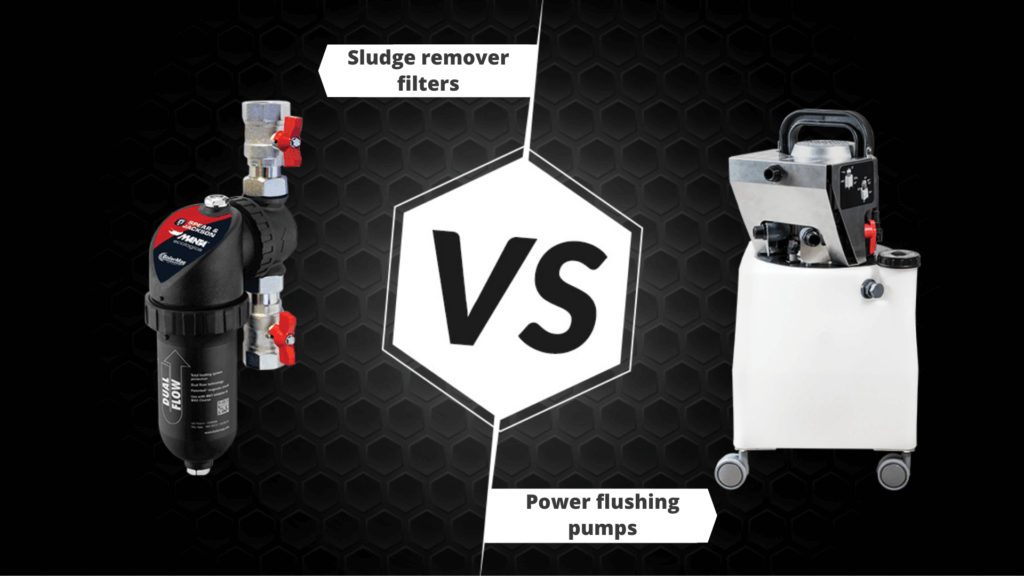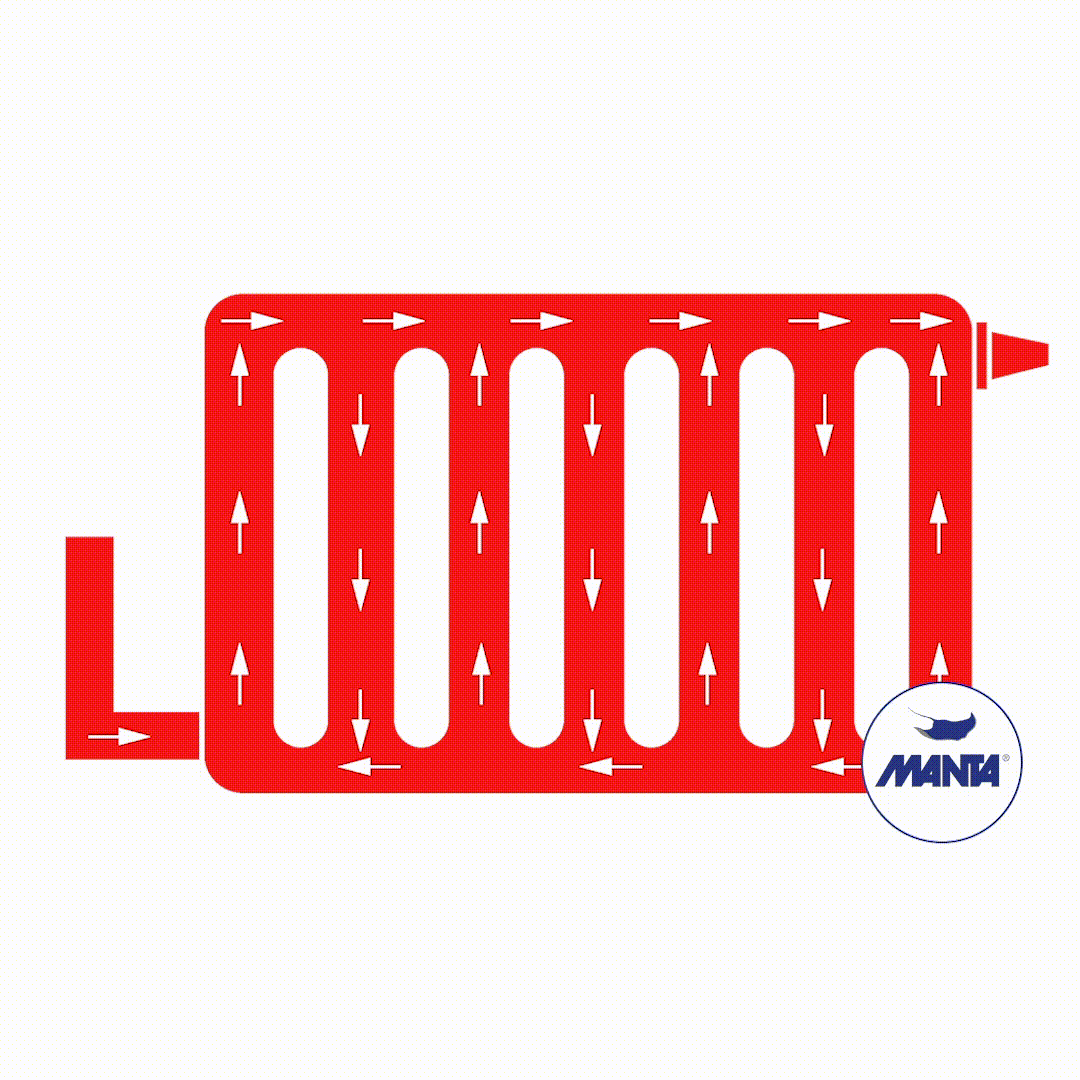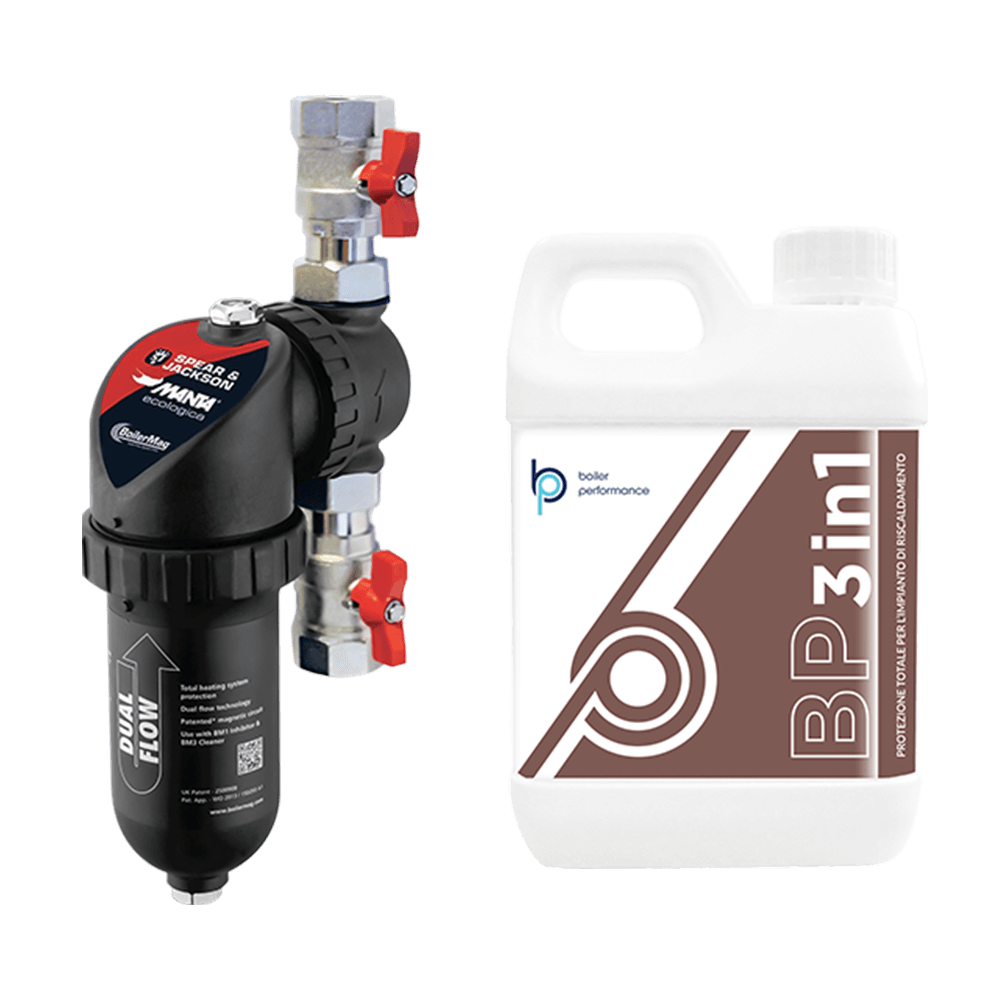
Installers know that most heating system problems are related to corrosion.
Moreover, even only after 6 months in contact with water, the efficiency of a system can be compromised.
In fact, if the metal of the pipes corrodes, debris and sludge start to form settling in the system (often in the lower part of radiators), reducing water circulation and heat exchange.

How does a magnetic sludge remover filter work?

Debris that originate from corrosion are a mix of magnetic and non-magnetic particles that circulate, deposit and stratify inside the plant.
A magnetic sludge remover filter can capture circulating magnetic particles and – if it has a filter mesh – can hold non-magnetic suspended particles with dimensions greater than the degree of filtration.
However, sludge remover filters have poor results on systems already compromised by corrosion and, therefore, on the particles already stratified inside the system.
In fact, even if we let a dedicated chemical product, such as BP 3in1, circulate inside the system to stop the incrustations and disperse the iron oxides, we would not be able to remove all the debris that have deposited and stratified over time.
How does a system flushing work?
A professional washing of a heating system – with the use of a power flushing pump and suitable chemical products – 100% eliminates all magnetic and non-magnetic particles, deposited and stratified.
Especially when a system is highly compromised or even occluded, the use of a professional power flushing pump is essential to remove stubborn deposits that tend to accumulate in the points where the normal water flow cannot reach (often in the lower part of radiators).
The circulation of water in the system, in fact, occurs in one direction and with a fixed flow rate.
With the use of an external pump equipped with a flow inverter and a high flow rate, however, it is possible to remove most of the debris present in the system.
To eliminate all the particles 100%, it is necessary to use dedicated chemicals (for example, fast-acting strong restorer BP 800).
















